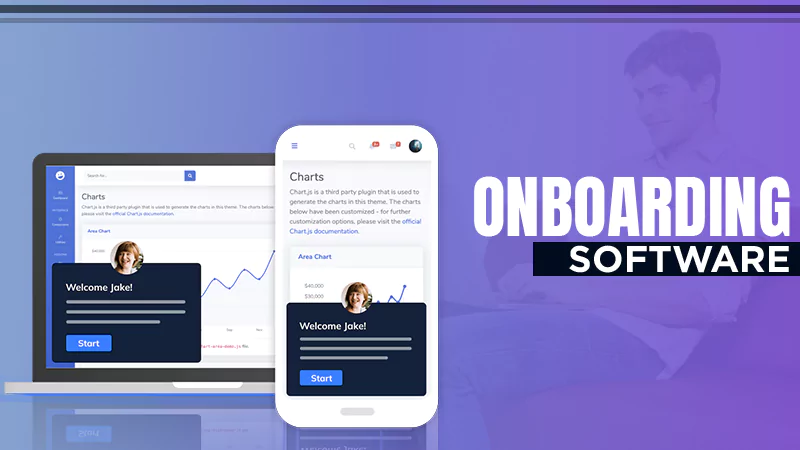A Look into the Future: Benefits of Data-Driven Marketing
Data-driven marketing has brought many significant benefits to businesses. Learn more by reading this article.
As we move forward into the digital age, digital marketing has become increasingly important. Since the majority of businesses are now conducted online, their marketing activities must also be done over the internet. As most of the world uses the internet, a large amount of data is generated by people’s interactions.
Businesses use data-driven marketing to manage this vast volume of data. This allows them to create their brand and reach out to a large audience without having to invest much time and money in traditional marketing techniques such as billboards and placards.
Having a thorough picture of data-driven marketing will not only help you understand how the new-age marketing sector works, but it will also be useful if you wish to start your business or improve your marketing strategy. In this article, we will explain what data-driven marketing is and what are its benefits.
What is Data-Driven Marketing?
Data-driven marketing is a strategy for improving media procurement and brand communication by analyzing user data. Consumer interactions and engagements on the internet are the most common sources of this information. This is then turned into actionable marketing tactics with the use of cutting-edge technology.
It is one of the most significant shifts in digital advertising that has ever taken place.
In a world dominated by technology, a professional digital marketing agency can assist businesses in expanding their operations and gaining a competitive edge. Personalization of every part of the marketing experience is now possible because of these rapidly growing tech areas.
Major Benefits of Data-Driven Marketing
The advantages of data-driven marketing, particularly data-driven advertising, are enormous. This is the most sophisticated and practical marketing field. Marketers are removing huge uncertainty from media planning and buying by employing algorithms and machine learning at agencies. This boosts the seller’s business by improving the customer search experience and sophisticated marketing capability.
Reaching Target Audience
Targeting the right customers is also getting easy with data-driven marketing. Ad campaigns and marketing messages are adjusted to be shown only to the proper marketing targets. A customer’s search history is tracked, and only relevant ads are shown, allowing them to find exactly what they’re browsing for while also optimizing their customer experience.
Sending Relevant Messages Only
Companies can also use data-driven marketing to send relevant messages to their target audiences. To engage with clients, marketing messages must be extremely precise and to the point. Marketing teams must comprehend exactly what a consumer is looking for to provide them with the most relevant information.
Helps Locate Your Customers
With data-driven marketing, new automation technologies, and analytical tools, determining where the majority of your audience is situated and how they are informed about your company or website has never been easier. You can gather data on where and when your clients acquire their information, such as social networking apps and the periods when they are most active. This allows you to send out commercials that are directed only to your targeted audience.
Improving Product Quality
When it comes to determining the quality and utility of a product, consumer feedback is critical. Data-driven marketing allows you to pinpoint exactly what your target customers like and dislike about a product and what they wish it had. This enables you to improve product quality and develop goods that can meet your customer’s requirements.
Prospects of Data-Driven Marketing
Data-driven marketing has given rise to innovative marketing concepts that help businesses reach out to clients in the most effective way. It also prompted the development of a variety of tools, including CRM (customer relationship management), allowing marketers to track individual consumers’ names and contact information.
Direct mailing and marketing initiatives were made possible by this. Depending on whether the marketer thought the segment was a good fit or what the customer cared about, different types of messages can be sent to different groups of customers. While integrating Salesforce data into the cloud, this program earned a lot of traction in the digital marketing world.
CRM has produced a new sector called marketing automation software, which was based on digital data-driven marketing. This opened the door for digital marketing ventures to pioneer the creation of unique marketing profiles based on client interaction, website monitoring, and email. This allowed for emailing specific consumers depending on certain triggers and activities, as well as segmenting ad prospects.
As a result of the massive amount of data collected, data management solutions were born. Marketers today spend billions of dollars on data-driven marketing platforms like data management and demand-side platforms each year.
What Does the Future Look Like?
The amount of data created is rapidly expanding. Artificial intelligence (AI) is the only way to make sense of the huge data influx. AI can assess this data and use it to generate customized consumer experiences in real-time. All brands must strive for a future in which every connection with clients is tailored to their specific needs.
Data Management Platforms
The data management platform is another crucial future concept in data-driven marketing, that best email marketing agencies are already utilizing and more ventures intend to do so in the future. Although business concerns still see these platforms as a way to handle basic challenges like content personalization and ad frequency caps, they’ve begun to recognize their other benefits too.
Personalization, and Privacy
Finally, personalization and privacy must be balanced in data-driven marketing. Because today’s customers are increasingly emboldened by technology and government privacy restrictions, obtaining authorization to access consumer data has become the first item on the agenda for brands. You will be unable to develop personalized consumer experiences without this authorization.
Final Thoughts
This can prove to be a great challenge in the future and this data-driven marketing sector needs to find a solution that can diminish the lines between personalized data and privacy so that brands do not have to keep asking for permission every time they want to personalize an ad campaign.
Share
















